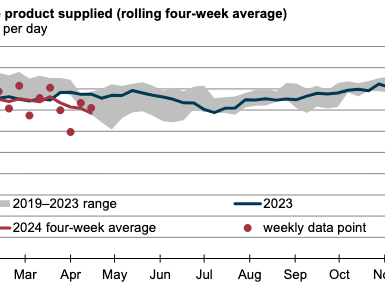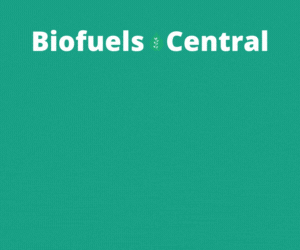Biofuels – Repsol begins large-scale production of renewable fuels in Cartagena, the first plant of its kind in the Iberian Peninsula.
Repsol marks a milestone in the decarbonization of transport in the Iberian Peninsula with the start of large-scale production of renewable fuels at its industrial complex in Cartagena (Spain). This plant is the first on the Iberian Peninsula dedicated exclusively to the production of 100% renewable fuels.
The company has invested €250 million in the construction of the unit, which has a production capacity of 250,000 tons per year. It can produce renewable diesel and Sustainable Aviation Fuel (SAF), which can be used in any means of transport: cars, trucks, buses, ships, or airplanes, and with existing refueling infrastructure.
The renewable fuels are produced from organic waste, such as used cooking oil or agri-food waste, thereby giving a second life to these types of residues. They are a quick and cost-efficient solution for the decarbonization of all transport sectors.
🔥 What about we co-host a webinar? Let's educate, captivate, and convert the biofuels economy!
Biofuels Central is the global go-to online magazine for the biofuel market, we can help you host impactful webinars that become a global reference on your topic and are an evergreen source of leads. Click here to request more details
The production of 100% renewable fuels at the plant in Cartagena will avoid the emission of 900,000 tons of CO2 a year, since they reduce net emissions by 90% compared to the mineral fuel that they replace due to the lower carbon intensity of the former.
Repsol’s executive managing director of Industrial Transformation and Circular Economy, Juan Abascal, highlighted the milestone that the start of industrial-scale production of 100% renewable fuels represents for the company:
Juan Abascal said:
With this first plant on the Iberian Peninsula we are taking another step forward in our transformation towards decarbonization, with a cutting-edge technological project.
The new plant will process 300,000 tons of organic waste a year – used cooking oil, among others – prioritizing residues of national and European origin. Repsol is certified under the ISCC-EU Voluntary Sustainability Scheme and the Spanish National Sustainability Verification System, ensuring traceability and the production of sustainable
In order to meet the growing demand of raw materials with lower carbon intensity to produce renewable fuels, Repsol has signed a strategic agreement with Bunge by which it acquires 40% of three industrial facilities operated by Bunge Ibérica dedicated to the production of oils and biofuels in Bilbao, Barcelona, and Cartagena, close to Repsol’s industrial complexes. With this alliance, Repsol increases its access to a wide portfolio of low-carbon raw materials to produce renewable fuels.
Repsol has formed alliances for the supply of renewable fuels with leading heavy duty vehicles companies in Spain and Portugal, such as Scania, Grupo Sesé, XPO, Serveto, Havi, Joanca, Carreras, Rhenus, and Luis Simoes, with end customers such as Coca Cola, Freixenet, and Seat; with companies in the passenger transport sector in Spain, such as Alsa and Avanza; and with maritime shipping companies such as Royal Caribbean.
To promote the use of SAF, Repsol has signed agreements with airlines such as Iberia, Ryanair, Vueling, and Air Europa for commercial flights. The acrobatic unit of the Spanish air force, the Eagle Patrol, demonstrated the efficiency of this type of fuel in the National Day parade in October 2022.
The deployment of this type of fuel has also reached the company’s service stations on the Iberian Peninsula. At present, Repsol supplies 100% renewable fuel at more than 140 locations in the main cities and transport corridors of Spain and Portugal. The company’s goal is to reach 600 by the end of this year and 1,900 by 2027.
The new plant in Cartagena, whose production of 100% renewable fuels represents 5% of total diesel output of the facility or 17% of its kerosene production, will be followed by a second one in Puertollano in 2025. With an investment of €120 million, a unit at this industrial complex will be converted to produce 240,000 tons of renewable fuel.
Repsol also plans to replicate this model in a third industrial center in Spain before 2030. At the same time, the company is committed to synthetic fuels (e-fuels), which are produced from renewable hydrogen and CO2 captured from the atmosphere, with an industrial demonstration plant project in the vicinity of its Petronor complex in Bilbao.
Juan Abascal highlighted Repsol’s commitment to transforming its six industrial complexes on the Iberian Peninsula into decarbonized multi-energy hubs, capable of treating all types of raw materials to produce materials with a low carbon footprint.
New business models based on digitalization and technology will be promoted in these centers. The company’s industrial transformation will rest on four pillars: energy efficiency, circular economy, renewable hydrogen, and CO2 capture, use, and storage.
“Our roadmap demonstrates Repsol’s commitment to industry, to generating employment and prosperity. Thus, we contribute to the development and territorial cohesion in less-favored areas, offering solutions that increase Spain’s energy independence,” added the company’s executive managing director of Industrial Transformation and Circular Economy.
Repsol aims to reach a total production capacity of renewable fuels, including renewable hydrogen and biomethane, of between 1.5 and 1.7 million tons in 2027 and up to 2.7 million tons in 2030, and to lead the market in Spain and Portugal for this type of fuel. With this project, and other initiatives already underway, the company is at the vanguard of the industry in terms of renewable fuel production capacity.
Repsol has one of the most efficient refining systems in Europe thanks to average investments of approximately €1 billion a year over the last decade, a period in which the European Union has lost 24 refineries, the equivalent of around 10% of its production capacity of the fuels that are used in most of road transport.
The company, thus, vindicates its commitment to industrial employment in the Iberian Peninsula, that provides higher salaries than other sectors and encourages investment in technology and innovation. The company’s refineries employ 28,000 people, including direct, indirect, and induced employment.
Repsol’s Strategic Plan for 2024-2027 contemplates investments of up to €6.8 billion in the company’s industrial businesses, of which 44% will be dedicated exclusively to low-carbon projects, dependent on the Spanish regulatory and fiscal framework. These projects include renewable fuels, biomethane, renewable hydrogen, and waste gasification initiatives, among others.
Highlights:
- Repsol is the only company in Spain and Portugal with a plant fully dedicated to the production of renewable fuels on an industrial scale.
- The new plant has the capacity to annually produce 250,000 tons of renewable fuels from waste, such as used cooking oil. The fuel can be used in airplanes, ships, buses, trucks, or cars.
- Renewable fuels are an already available alternative that can be used in existing vehicles and infrastructures to help speed up the decarbonization of transport.
- The renewable fuels manufactured in Cartagena will avoid the emission of 900,000 tons of CO2 per year.
- Repsol’s executive managing director of Industrial Transformation and Circular Economy, Juan Abascal, stressed that this first plant will be followed by other projects to increase the company’s production capacity of renewable fuels, as part of the process to transform the company’s industrial complexes and achieve the commitment to become zero net emissions by 2050.
READ the latest news shaping the biofuels market at Biofuels Central
Repsol begins large-scale production of renewable fuels in Cartagena, the first plant of its kind in the Iberian Peninsula, April 3, 2024








